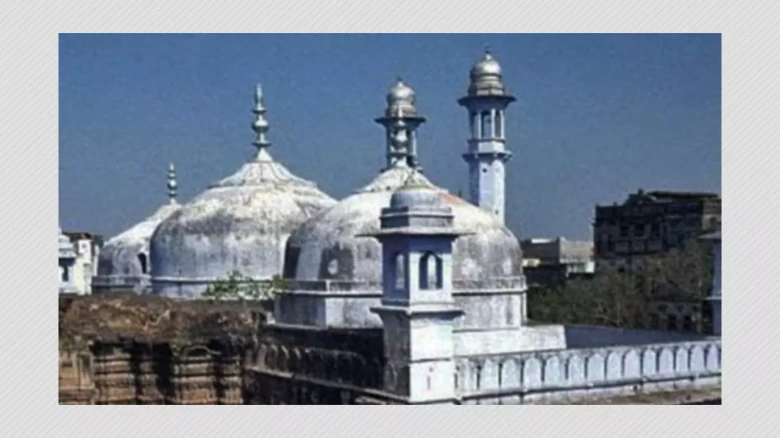The court had questioned SFA Naqvi, the lawyer for the Masjid Intezamia Committee, about why the fundamental order of January 17, 2024, had not been contested
Digital Desk: The Allahabad High Court on Friday refused to grant a stay on the Varanasi Court's judgment permitting Hindus to pray in the Gyanvapi mosque's southern cellar. The Masjid Intezamia Committee of Gyanvapi mosque was given until February 6 by the court to revise their pleadings and include a challenge to an order that was passed on January 17 and led to the January 31 order. The next scheduled day of the hearing is February 6.
The bench of Justice Rohit Ranjan Aggarwal stated that the order dated January 17, 2024, should be challenged first by the mosque side. District Magistrate Varanasi was designated as the receiver by this judgment, and on January 23, the DM seized possession of the Gyanvapi premises. Following this, the Kashi Vishwanath Temple Trust has been granted permission by the District Court to conduct puja in the basement using a priest through an interim order dated January 31.
The court had questioned SFA Naqvi, the lawyer for the Masjid Intezamia Committee, about why the fundamental order of January 17, 2024, had not been contested. The committee's attorney stated, "He had to come immediately because of the January 31 directive. Will contest it as well (the fundamental arrangement). Since the district magistrate began the puja within nine hours after receiving the order and made preparations during the night."
The lawyer for the Hindu side, Vishnu Shankar Jain, raised concerns about the appeal's ability to be maintained. He stated that no one had contested the initial order. The plaintiff has not received a remedy from the lower court. The temple trust now has the authority.
Early on Thursday morning, the Masjid Intezamia Committee also appeared before the Supreme Court; however, the Supreme Court recommended that the matter be taken to the High Court. On January 31, however, the district court in Varanasi granted permission for the Hindu side to pray in the Gyanvapi mosque's southern cellar. The Varanasi district magistrate was instructed by the court to arrange, within seven days, for the Hindu side and a pujari (priest) designated by the Shri Kashi Vishwanath Temple Trust to do "puja."
The court's ruling was followed, and early on Thursday morning, "puja" and "aarti" were held. Shailendra Kumar Pathak Vyas, the chief priest of the Acharya Ved Vyas Peeth temple, filed a plea asking to worship Shringar Gauri and other visible and invisible deities in the mosque's basement. The district court granted his request. From December 1993 until now, Vyas, the scion of the family, performed "puja" in this cellar.
According to the petition, priest Somnath Vyas, Vyas's maternal grandfather, used to worship in the bunker until the authorities shuttered it in 1993. Lawyer Akhlaq Ahmed, representing the Muslim side, commented after the Varanasi court verdict: "The order has overlooked the Advocate Commissioner report of 2022, the ASI's report, and the 1937 decision, which was in our favor." There is no proof, according to the Hindu side, that prayers were said prior to 1993. Such an idol does not exist there."
There are four 'tahkhanas' (cellars) in the mosque's basement; the Vyas family used to occupy one of them. In his appeal, Vyas had requested permission to resume performing pooja inside the tahkhana, given his status as a hereditary pujari. Concerning the remnants of a Hindu temple, the ASI assessment, which was mandated by the same court in relation to a similar issue, revealed that the mosque was built during Aurangzeb's reign.

Leave A Comment